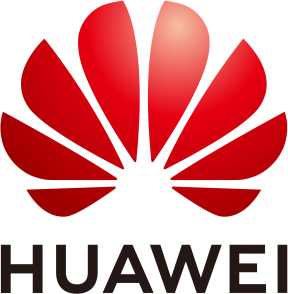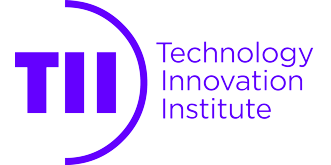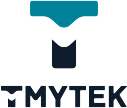PN-01: Future Trends and Technologies for 6G Security
PN-02: Energy Efficiency in Wireless Communications Networks, 5G to 6G Challenges and Opportunities
PN-03: Research Trends in the 6G Era and Beyond
PN-04: Towards Autonomous 6G Networks: Requirements, Standards, and Challenges
PN-01: Future Trends and Technologies for 6G Security
(Monday, 22 April, 16:00 GMT+4)
Room: Grand Ballroom CD, 2nd Floor
This papel proposes an industry panel proposal on future trends and technologies for network security. With the standardization and commercialization completed at an unforeseen pace for the 5G wireless networks, researchers, engineers and executives from the academia and industry are now exploring new technologies that can support 6G wireless networks. These emerging technologies bring 6G networks high-performance capacities yet pose different challenges to security at the same time. To secure the 6G network, the traditional external and passive security mechanism driven by security events and equal guarantee compliance cannot satisfy the needs of the business. A novel security architecture that enables 6G security systems to be self-sensing, self-adaptive, and self-growing is required. To achieve this goal, quantum communication, zero trust, artificial intelligence (AI)/ machine learning (ML), and other emerging technologies can act as candidates to meet the security requirements and ensure the reliability and functionality of the upcoming 6G system.
This panel brings together speakers from academia and industry to exchange visions on the challenges and opportunities expected to be encountered in 6G networks and discuss novel security architecture, applications, and candidate technologies that will help secure 6G networks.
PN-02: Energy Efficiency in Wireless Communications Networks, 5G to 6G Challenges and Opportunities
(Tuesday, 23 April, 14:00 GMT+4)
Room: Ballroom B, 4th Floor
The panel will discuss following topics:
• Energy efficiency in wireless network, discuss the challenges and opportunities.
• Major energy consumers in wireless network and their evolution from 5G to 6G
• Metrics of energy efficiency in current and future mobile networks
• Challenges of using AI for improving network energy efficiency: AI sustainability, AI energy consumption
• Evolution of the service-based architecture (SBA), from 5G to 6G, to improve energy efficiency
• What could be the role of Open RAN paradigm in sustainability and energy efficiency enhancement of the network?
PN-03: Research Trends in the 6G Era and Beyond
(Tuesday, 23 April, 16:00 GMT+4)
Room: Ballroom B, 4th Floor
Over the past few year of discussion and brainstorming the vision for future generation of communication systems have been evolving. The promise of 6G is a technology framework that enables the interconnection and symbiosis among physical, biological and digital worlds and provides a unified experience across those worlds. This panel offers a closer look at the wireless communication systems in the 6G era and the applications that drive 6G technologies. We address the research trends and open research problems on the path to shaping the future telecommunication networks.
PN-04: Towards Autonomous 6G Networks: Requirements, Standards, and Challenges
(Wednesday, 24 April, 14:00 GMT+4)
Room: Ballroom B, 4th Floor
In today's ever more interconnected global landscape, the telecommunications industry assumes a pivotal role in facilitating seamless communication and propelling the digital transformation of businesses and societies alike. As we set our sights on the future, the forthcoming phase of telecom network development promises an intriguing voyage towards increased autonomy and enhanced convergence. This panel endeavors to scrutinize the potential technological advancements and transformative shifts that will undoubtedly define the telecom network ecosystem in the forthcoming years with the experts from academia and industry.
PN-05: Standardization and Industrialization for Reconfigurable Intelligent Surfaces (RIS): The Story for the Second Half
(Wednesday, 24 April, 16:00 GMT+4)
Room: Ballroom B, 4th Floor
With the start of standardizing 5G-Advanced, both academia and industry are exploring actively into future technologies for next generation networks. Reconfigurable intelligent surfaces (RISs) have been envisioned to reduce energy consumption and improve the spectral efficiency of wireless networks by artificially re-configuring the propagation environment of electromagnetic waves. RIS-based transmission, in which the large number of small, low-cost, and passive elements on RIS only reflect the incident signal with an adjustable reflection amplitude and phase shift without requiring a dedicated energy source for radio frequency processing, decoding or encoding, is completely different from existing active relays and open up a new area of research for wireless communications.
The extensive research efforts devoted into this area can be seen as the first half of the game, while the second half will open the door for standardization and industrialization. How will RIS be standardized? What are the impacts to current 3GPP standards? What are the killer applications of RIS? Many questions are worth thinking of during this second half. This panel of experts will be engaged in discussions of:
• Analysis of RIS-assisted communication capacities, with a focus on the typical scenarios identified by early standardization efforts
• Practical use cases for RIS in future networks, especially the ones which can bring practical values to network operators
• Design, testing and trials of RIS which will make impact to standardization of this particular technology
• Communication protocols for RIS-assisted communication systems
• Autonomous deployment of RIS in coherence with current 5G/5G-A networks








